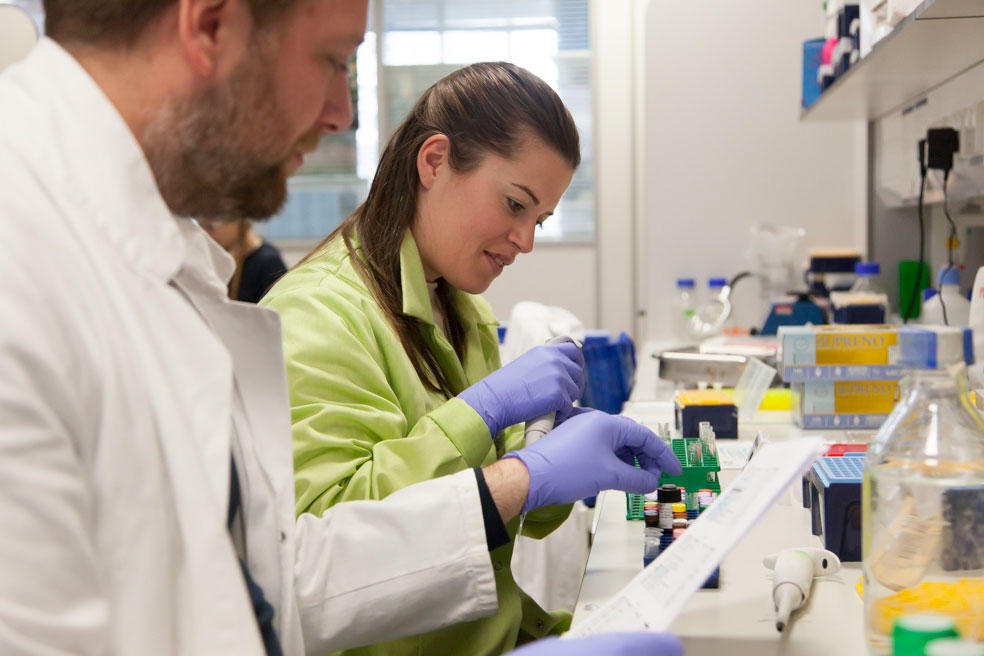Queen Mary employer of choice
We work closely with the human resources team to represent the views of FMD staff and influence the development of staff friendly policies.
Professional Development
Queen Mary supports staff in their career and personal development, and delivers this through 2 areas:
- The Queen Mary Academy offering university-wide support and development of education and research, working with staff and students to develop and enhance their practice in teaching, learning, and research. This is primarily relevant to academic and research colleagues.
- The Organisational and Professional development team supports all Queen Mary staff in their career development and covers personal effectiveness, leadership, management skills, career coaching and mentoring as well as supporting group initiatives such as team awaydays or networking.
Flexible working
Any Queen Mary employee can apply to work flexibly by requesting a change to their contract. There is no automatic right to work flexibly but we do have a duty as an employer to deal with any requests in a reasonable manner.

My working day starts at 8am and finishes at 4pm. I prefer the earlier start as I am generally an early riser and like to travel into work (pre-COVID) before the peak to avoid the crowds. The trains at this time aren't too busy, and I usually have time to get off a stop earlier and walk the rest of the way to get in some exercise at the start of the day. I find I can get most of my big tasks done for the day between 8am and 12pm - the tasks that require more concentration and less distraction. I make sure to get out for a walk at lunch, and that way I have more brain power and can schedule creative tasks or necessary admin in the afternoon. Leaving at 4pm also makes the evenings feel longer and I can make the most of my free time after work. The only downside is hanging around for an extra hour on a Friday to meet your colleagues after work for a drink!
Types of flexible working
This option allows flexibility at the start and finish of the working day, and also allows an accumulation of hours at busy times. This means that employees can more easily fit work around personal commitments and the office benefits by having a more flexible workforce.
Remote working is where an employee meets their contractual obligations by working from home or another location outside their normal base on an occasional, temporary, regular or permanent basis. There are many types of jobs that could enable staff to use this option either occasionally or regularly. It may be the case that a particular task needs completing which could be done more easily in a home environment, such as writing a report. There may also be occasions when it is more convenient to work from home for personal reasons, for example when attending medical appointments.
This option is useful if you want to continue working the total number of hours you currently work and retain your current benefits but would prefer to compress the hours into a shorter working week or fortnight, allowing some ‘free’ time during the normal working week. The work patterns proposed will be considered to see if they are workable within the department concerned.
This is a variation in the arrangement of hours where staff work to an annualised contract rather than a weekly or monthly number of hours. They may work more hours at particular times of the year to take account of seasonal peaks and troughs in their workload. The hours to be worked by each employee are negotiated in advance, and can vary on a daily, weekly or monthly basis.
This arrangement involves staff working either fixed patterns of work which vary from the norm (e.g. night work only) or which vary from day to day and week to week. Typically, shift work is designed to provide cover for longer hours than would usually be worked by the majority of staff, may cover 24 hours a day, seven days a week.
Working staggered hours mean that although staff work fixed hours every day, the start, finish and lunch times could be agreed to suit personal needs. This is particularly useful if someone has fixed activities to be accommodated each week, such as care duties. This option could mean that potentially the workplace would be staffed for longer hours than normal if staff were working different ‘shifts’.
There are many job roles that involve a range of duties, which could be shared by 2 people. Not only does this create additional employment opportunities, but offers increased flexibility in employment arrangements particularly for those who wish to work part-time while retaining a high level of responsibility. There are a number of patterns for job sharing such as:
- Split week - This is the most common pattern, where each partner works 2.5 days per week.
- Overlapping week - Each job share partner works 3 days so that there is an overlap of 1 day.
- Split day - One job share partner works every morning while the other works every afternoon.
- Alternate week - Each job share partner has 1 or more weeks at work and then the same number off work.
- Simultaneously for 2 or 3 days per week – partner works the same days at the same time
Due to personal commitments, there may be a number of occasions when it is more beneficial to work reduced hours, either on a temporary or a permanent basis. It may also be a recommendation from Occupational Health to work phased hours either before or after a long period of absence. Reduced hours on a permanent basis can include the following arrangements:
- Working on a part-time basis/job split.
- Working only during term-time.
- Reduced hours on a temporary basis - for example when commitments outside work mean that you would prefer to work shorter hours for an agreed period of time, before returning to your normal hours.
Our Research and Staff Policies
Alongside tackling global medical problems and improving the health of millions our work helps to inform our staff policies. The two schemes outlined below have been developed by Queen Mary as a result of research undertaken by the school. Working at Barts and The London means that in addition to being proud of the quality of research produced by our faculty, we can be sure that it will help to develop staff policies that assist us in our day-to-day work.
Fertility treatment

Queen Mary recognises the physical and emotional stresses of undergoing fertility testing and treatment and wishes to support its staff who are going through these processes. Our Fertility Treatment Policy is intended to support and assist staff members in the logistical and emotional aspects of undergoing treatment by allowing them reasonable adjustments while undertaking such treatment. This may be a combination of time off for medical appointments, working from home, or sick leave.
Menopause policy

Queen Mary recognises that going through the menopause can be a difficult time some people. Our Menopause Policy is designed to support staff members going through the menopause, and offers a range of reasonable adjustments for staff who are experiencing acute or chronic symptoms.




